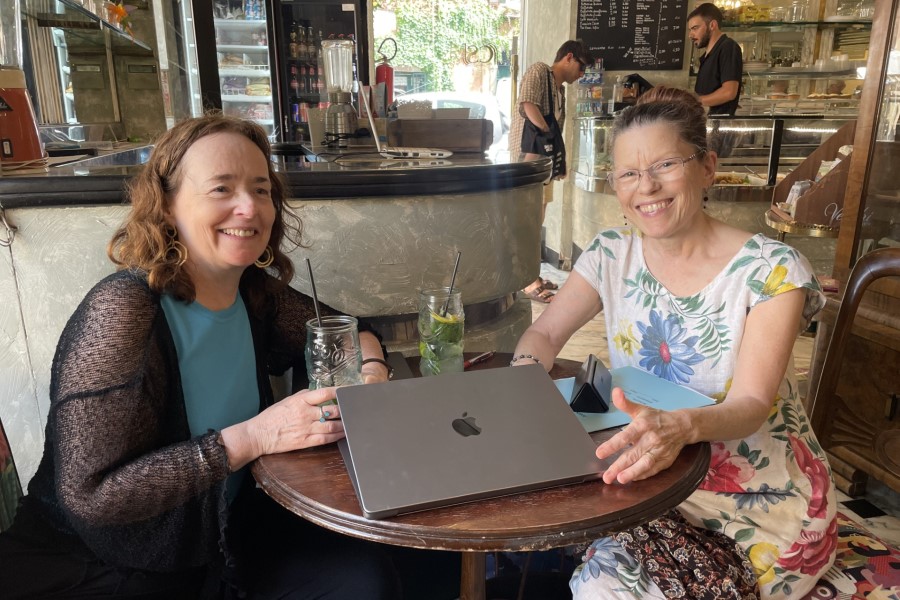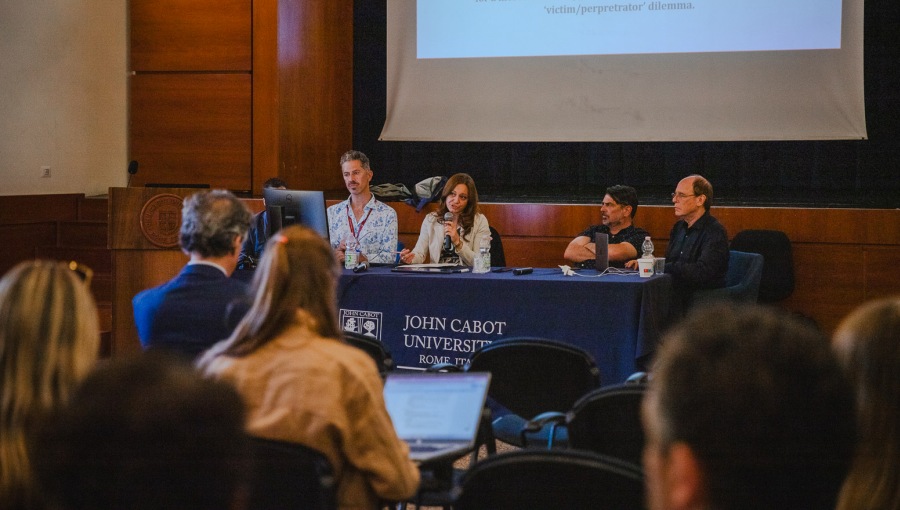Arendt's Lesson for our 'Post-Truth' Moment: Dr. Guido Parietti
The JCU Department of Political Science and International Affairs invited Dr. Guido Parietti for a lecture entitled, “Arendt’s Lesson for our ‘Post-Truth’ Moment: the Powerlessness of Reality and the Unreality of Power” on February 18, 2019.
Parietti introduced the German philosopher and political theorist Hannah Arendt (1906 – 1975) as one of the most important political thinkers of the 20th century. Her works, such as The Origins of Totalitarianism (1951), The Human Condition (1958), and On Revolution (1963) undoubtedly attest to the uniqueness of her understanding of politics.

Guido Parietti
The first part of the lecture introduced the basic elements of Arendt’s thought, by explaining the three fundamental human activities that she identified: work, labor, and action. According to Arendt, work involves the production of material and non-material objects. Labor is anything that sustains our life process, satisfying bodily necessities. Lastly, action is a free and powerful activity precisely because of its “purposeless” nature, which must, however, be carefully understood to avoid falling into a caricature of “pure” politics too often attributed to Arendt. Parietti provided an example to illustrate this concept: the action of giving a speech remains the action of giving a speech, even if the goal or the outcome changes, whereas the work of making an object would not be the same work if the object itself were to change.
On the basis of this distinction, it is possible to understand how for Arendt politics was a space for action, power, and freedom, which led to the second part of the lecture, focusing on politics and lying in politics.
In her works, Truth in Politics (1967) and Lying in Politics (1971) Arendt examines the relationship between politics and lying, which is based on a deep affinity between lying and action. According to Parietti, here we can draw lessons from Arendt on three different levels: appreciation for historical particularities, categorization for types of lying, and conceptualization of the lying act itself. On the first level, the instances of systematic lying noted by Arendt, in totalitarianism and in the “marketing” of the Vietnam war, are illuminating for both the affinities and the differences with our times. On the second level, the distinction between different types of lying allows a finer-grained appreciation of our situation and the risks involved in it. Finally, the general concept of lying as a type of action clarifies both the unavoidable intertwinement with politics and, at the same time, provides reasons to believe that the attempt to substitute lying actions for factual truths is intrinsically doomed to fail.
Guido Parietti recently completed a Ph.D. in political science at Columbia University, with a dissertation entitled On the Concept of Power. In 2011, he obtained a Ph.D. in philosophy from La Sapienza – University of Rome. He has published a book on deliberative democracy (La democrazia deliberativa: una ricostruzione critica. Roma, 2013, Manifestolibri), as well as book chapters and various articles – on Arendt, Hobbes, political theology, and politics as an autotelic domain – in the European Journal of Political Theory, the European Journal of Philosophy, Society, Il Mulino, and La Cultura.





